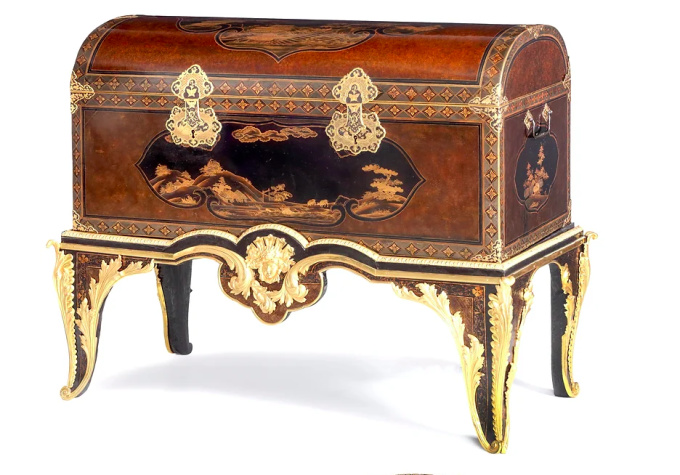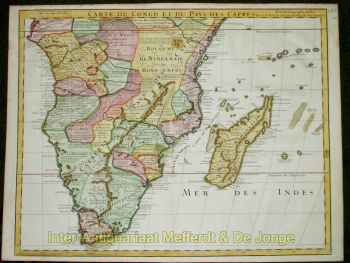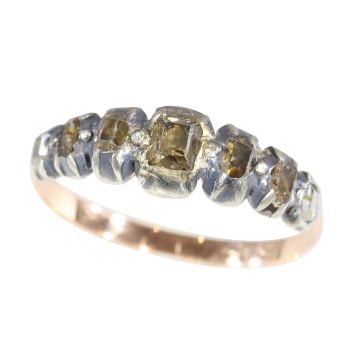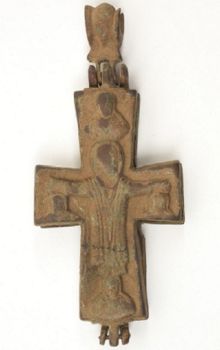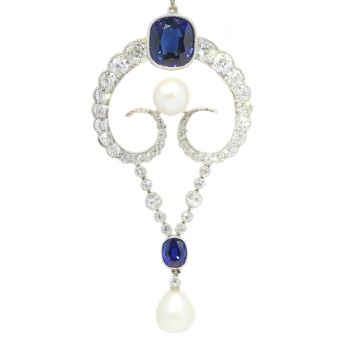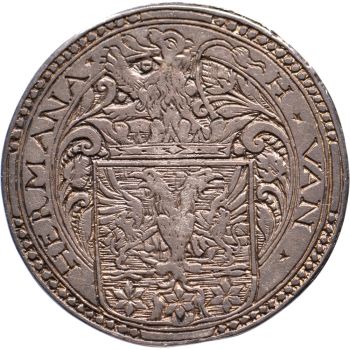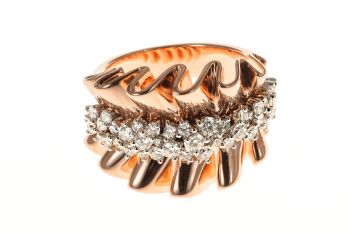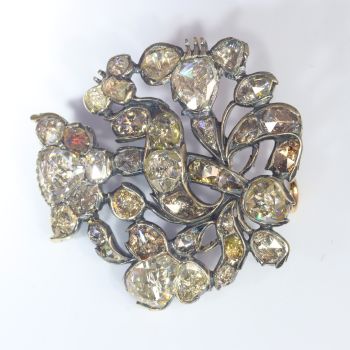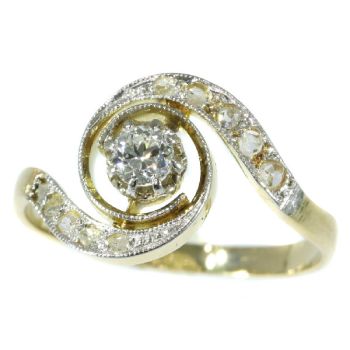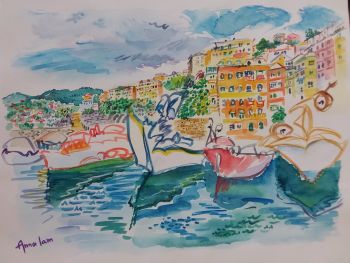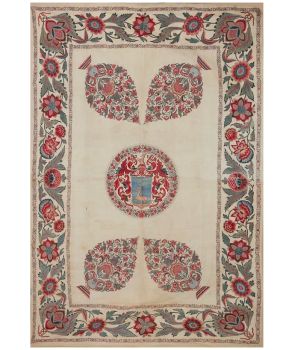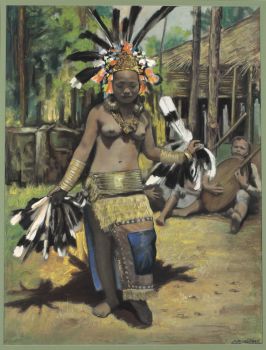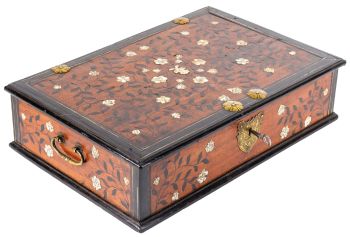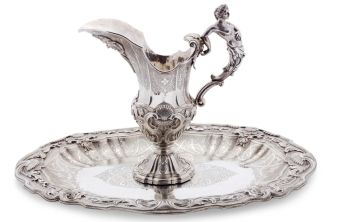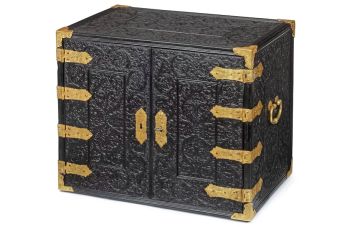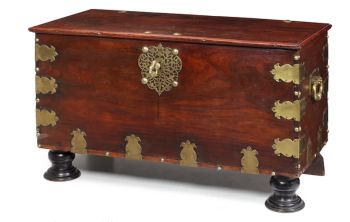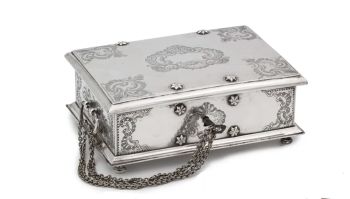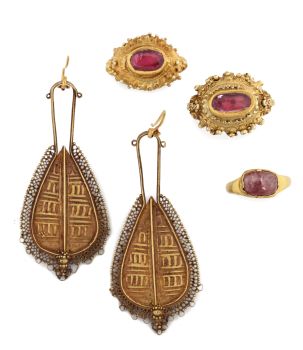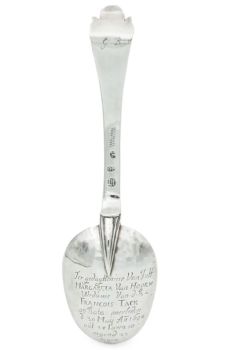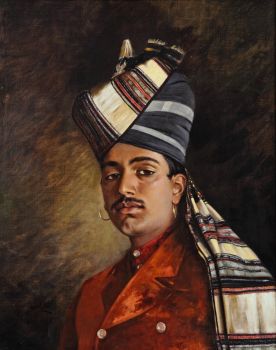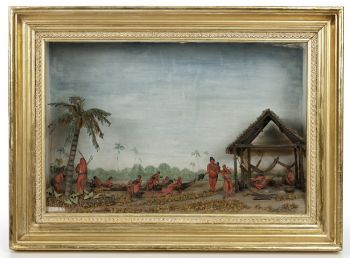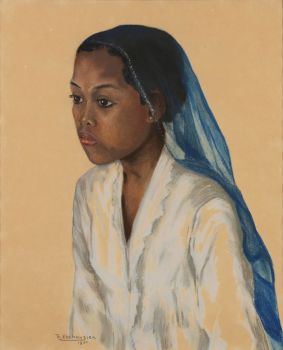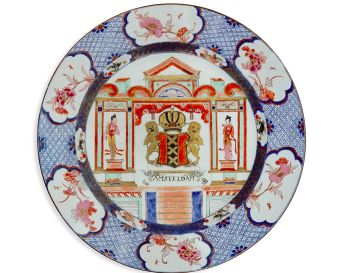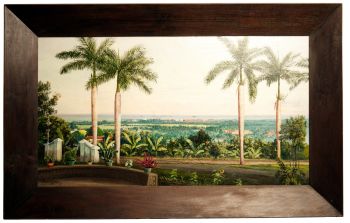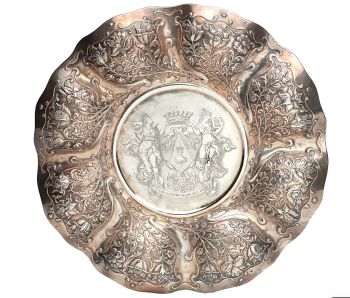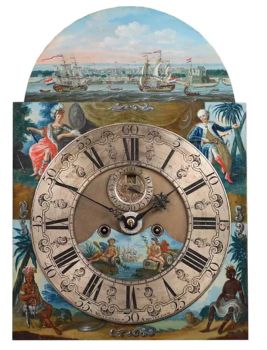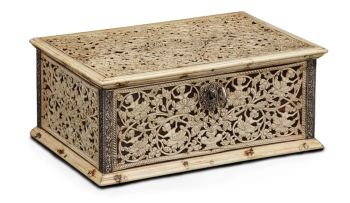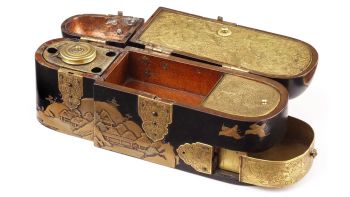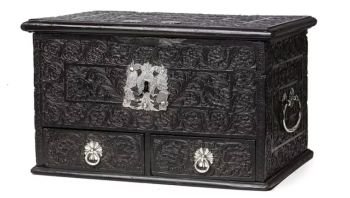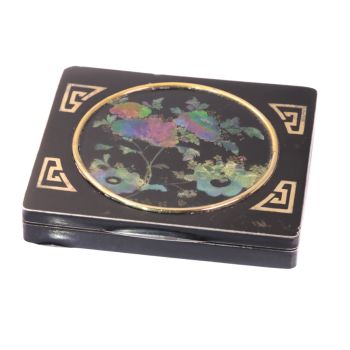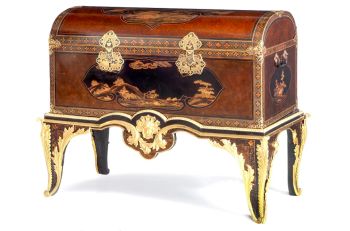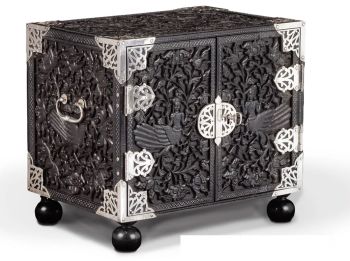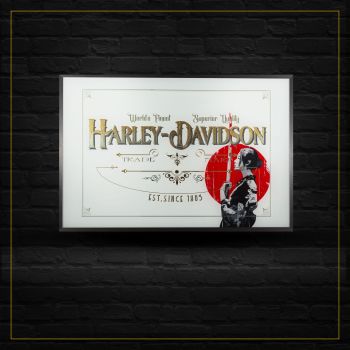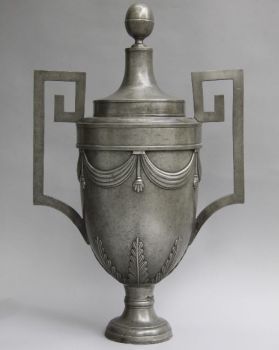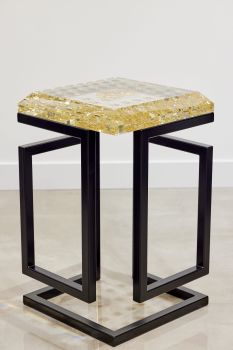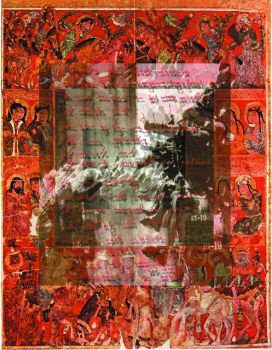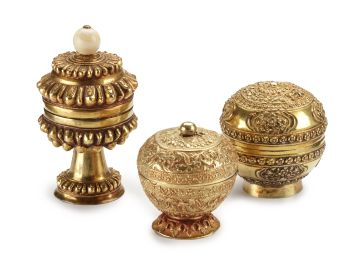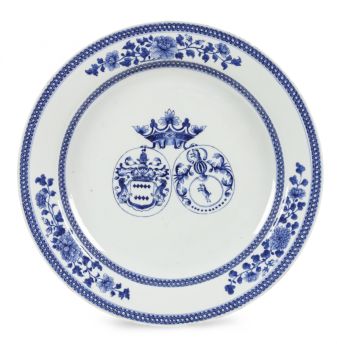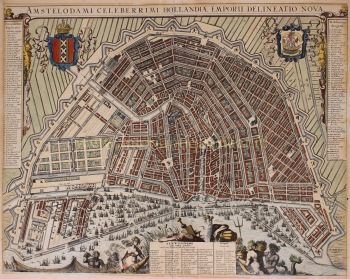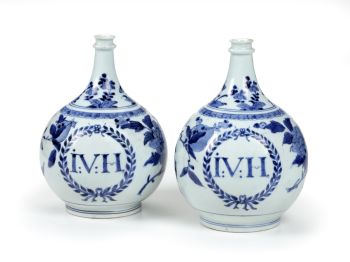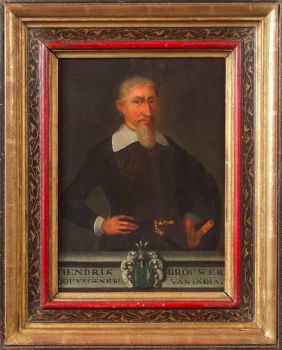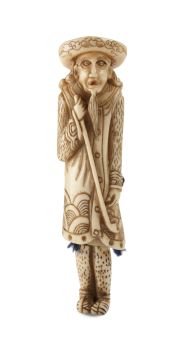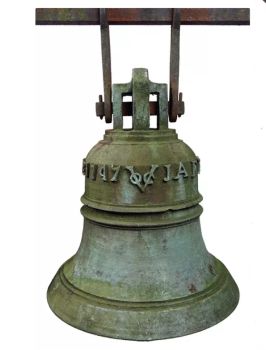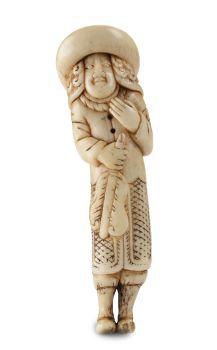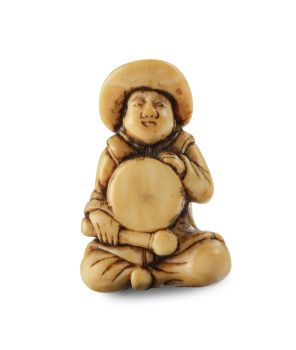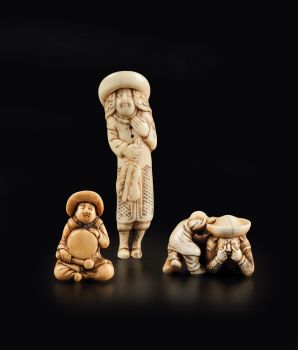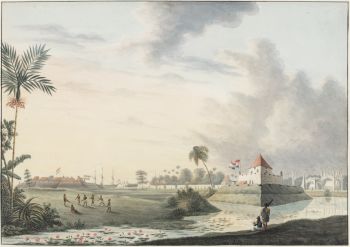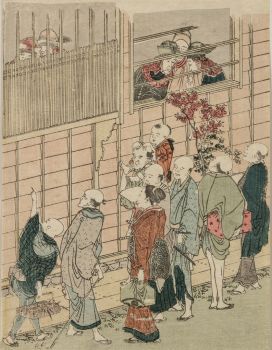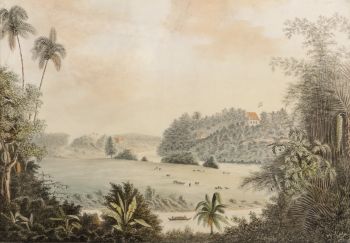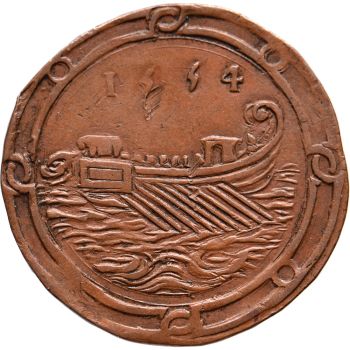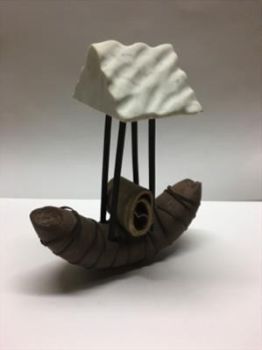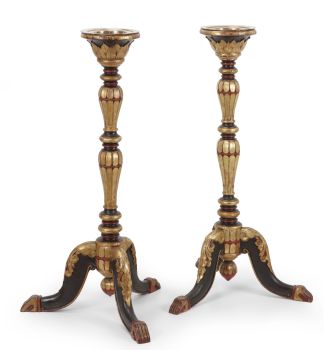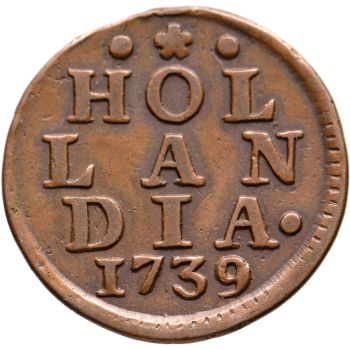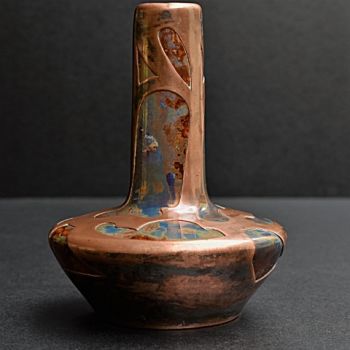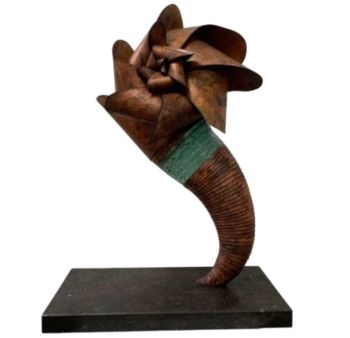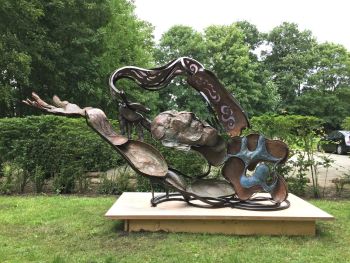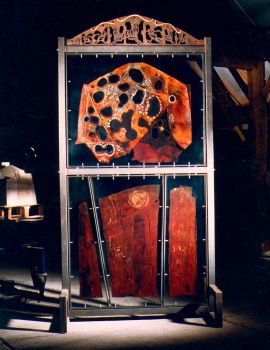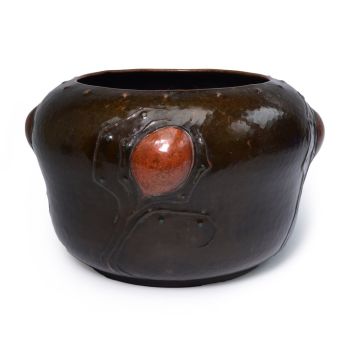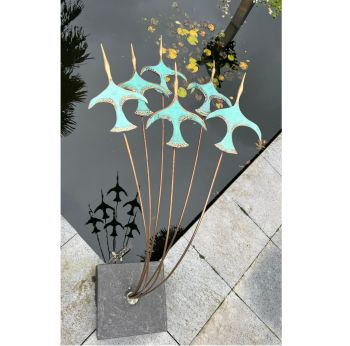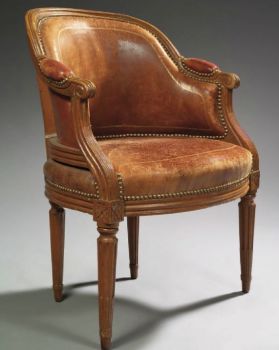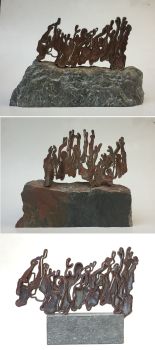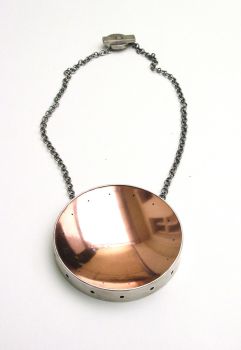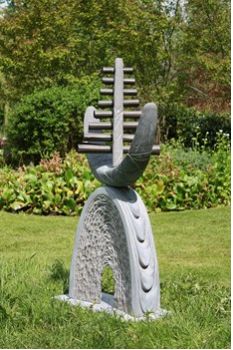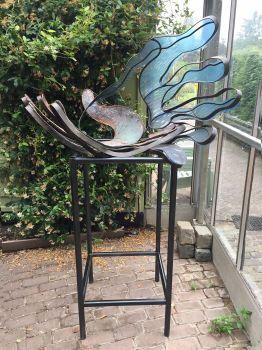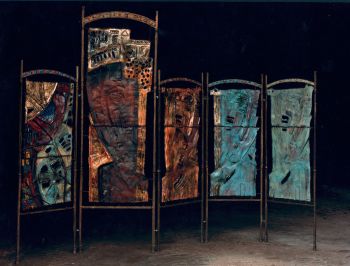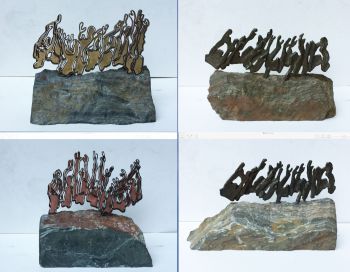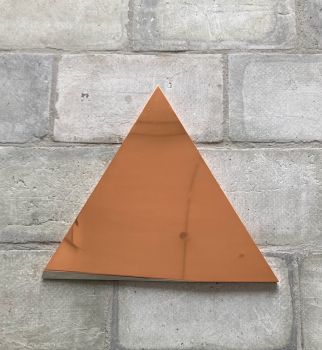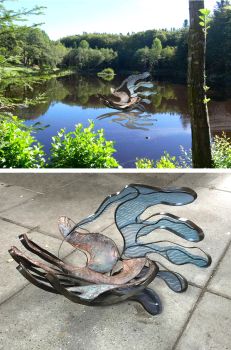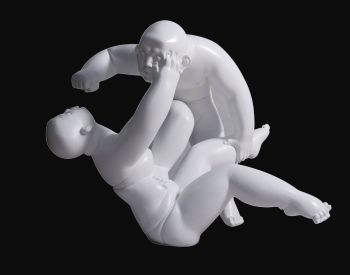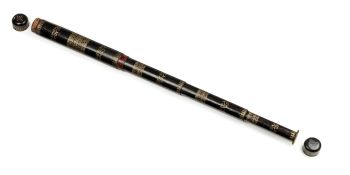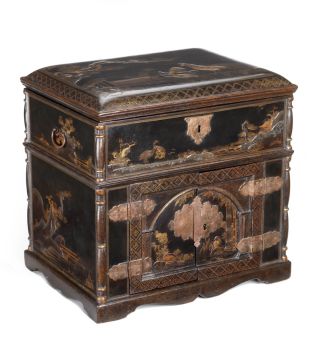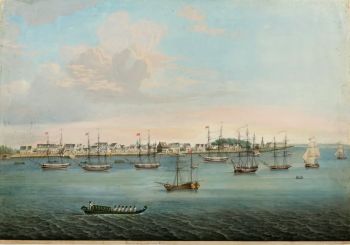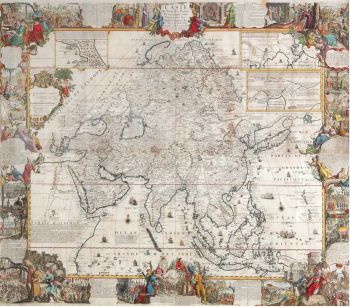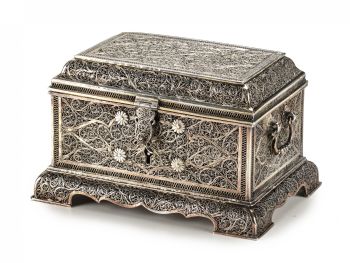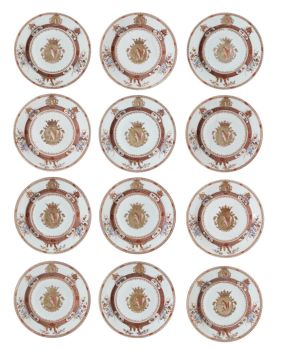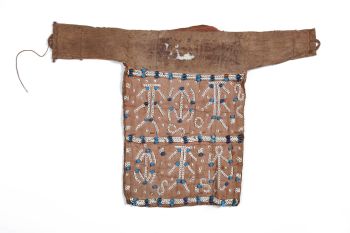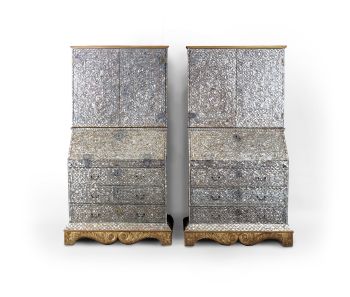An impressive and large Japanese transition-style lacquer coffer with fine gilt copper mounts, on Fr 1640 - 1650
Artiste Inconnu
MétalCuivreLaque
Prix sur demande
Zebregs & Röell - Fine Art - Antiques
- Sur l'oeuvre d'artKyoto, 1640-1650, the base part 18th century
Coffer: L. 132.7 x H. 62.8 x D. 59.3 cm
Stand: L. 143.7 x H. 51 x D. 71.9 cm
The coffer with shaped cartouches on a nashiji ground on the lid, front and sides, with fine decorations in various techniques: takimaki-e (high relief), tsuke-gaki (drawing with narrow lacquer lines and over sprinkling with gold and silver), usuniku-takamei-e (demi relief), kimekomi (pushed inside) and accents of kirigane (small geometrical metal mosaics). Inside the cartouche on the lid a landscape with volcanos, at their feet temples and around their summits clouds. Inside the cartouche of the front a hilly landscape with trees, huts and two cows at a waterside, under clouds. The cartouches at the sides show autumn grasses, chrysanthemum and campanula, and the back is decorated with trails of clematis. The black lacquered and gilt mounts showing a mom, a Japanese family coat of arms, are quite similar to the black and gilt mounts of the Mazarin coffer in the V&A museum (inv. 412:1-1882) and the recently acquired coffer in the Rijksmuseum (inv. AK-RAK-2013-3-1).
After the five year lapse in trade with Japan as a result of the Taiwan Incident (see number 44 in Uit Verre Streken, November 2021, a wood block print depicting the capture of Pieter Nuyts, the Dutch governor of Formosa/Taiwan, by Japanese sea captains in 1628), in 1633 ordering of Japanese lacquer by the VOC as well as by private trade seriously took off. Attempts by the VOC to prevent private trade were largely unsuccessful. Private traders were quicker, got the better pieces and often for better prices than the VOC which had to rely on officials whom themselves traded privately. It was not difficult for Dutch clients outside Japan, having the right connections with VOC officials in the Netherlands or Batavia, or even directly through merchants on Deshima, to buy Japanese lacquer. By its nature, private trade is rather elusive, usually lacking written document such as letters, orders or invoices. Much private trade dealt in the same objects the Company bought, so these pieces can not be distinguished. Whether the present coffer was ordered by the VOC or by a private trader therefore can not be decided. By the end of the 17th century, because of complaints about the prices and the quality of the lacquer offered by the VOC, the Company decided to stop trading in lacquer all together in 1693. Successful private trade in lacquer continued though.
The base was probably made in the 18th century, but the unworked horizontal gilt-bronze mounts are 19th century. Often, a bureau by Boulle was made into two console tables, with the remainder of the mounts being used for a smaller piece of furniture like the stand present. The worked mounts have been XRF analyzed and seem to date from the exact working period of Charles Boulle. - Sur l'artiste
Il peut arriver qu'un artiste ou un créateur soit inconnu.
Certaines œuvres ne doivent pas être déterminées par qui elles sont faites ou elles sont faites par (un groupe d') artisans. Les exemples sont des statues de l'Antiquité, des meubles, des miroirs ou des signatures qui ne sont pas claires ou lisibles, mais aussi certaines œuvres ne sont pas signées du tout.
Vous pouvez également trouver la description suivante :
•"Attribué à …." A leur avis probablement une oeuvre de l'artiste, au moins en partie
•« Atelier de …. ou « Atelier de » À leur avis, une œuvre exécutée dans l'atelier ou l'atelier de l'artiste, éventuellement sous sa direction
•« Cercle de… ». A leur avis une oeuvre de la période de l'artiste témoignant de son influence, étroitement associée à l'artiste mais pas forcément son élève
•« Style de … ». ou "Suiveur de ...." Selon eux, une œuvre exécutée dans le style de l'artiste mais pas nécessairement par un élève ; peut être contemporain ou presque contemporain
•« Manière de… ». A leur avis une oeuvre dans le style de l'artiste mais d'une date plus tardive
•"Après …." A leur avis une copie (quelle qu'en soit la date) d'une oeuvre de l'artiste
•« Signé… », « Daté… ». ou « Inscrit » À leur avis, l'œuvre a été signée/datée/inscrite par l'artiste. L'ajout d'un point d'interrogation indique un élément de doute
• "Avec signature ….", "Avec date ….", "Avec inscription …." ou "Porte signature/date/inscription" à leur avis la signature/date/inscription a été ajoutée par quelqu'un d'autre que l'artiste
Êtes-vous intéressé par l'achat de cette oeuvre?
Artwork details
Related artworks
- 1 - 4 / 12
Artiste Inconnu
A silver spoon commemorating Juff’ Margareta van Hoorn1656 - 1694
Prix sur demandeZebregs & Röell - Fine Art - Antiques
Artiste Inconnu
A Dutch colonial Indonesian betel box with gold mounts1750 - 1800
Prix sur demandeZebregs & Röell - Fine Art - Antiques
Artiste Inconnu
UN PLAT EN ARGENT LOBBED INDONÉSIEN INSOLITElate 17th
Prix sur demandeZebregs & Röell - Fine Art - Antiques
Artiste Inconnu
A Surinam-themed Amsterdam long-case clock1746 - 1756
Prix sur demandeZebregs & Röell - Fine Art - Antiques
 Sélectionné par
Sélectionné parGallerease Magazine
1 - 4 / 24Artiste Inconnu
A rare Japanese export lacquer medical instrument box1650 - 1700
Prix sur demandeZebregs & Röell - Fine Art - Antiques
Artiste Inconnu
A Dutch colonial Indonesian betel box with gold mounts1750 - 1800
Prix sur demandeZebregs & Röell - Fine Art - Antiques
Artiste Inconnu
Japanese transition-style lacquer coffer 1640 - 1650
Prix sur demandeZebregs & Röell - Fine Art - Antiques
Artiste Inconnu
Japanese transition-style lacquer coffer 1640 - 1650
Prix sur demandeZebregs & Röell - Fine Art - Antiques
1 - 4 / 24Artiste Inconnu
The bell of the VOC fortress in Jaffna, Sri Lanka1747
Prix sur demandeZebregs & Röell - Fine Art - Antiques
 Sélectionné par
Sélectionné parDanny Bree
Artiste Inconnu
Néerlandais en miniature18th century
Prix sur demandeZebregs & Röell - Fine Art - Antiques
Artiste Inconnu
A silver spoon commemorating Juff’ Margareta van Hoorn1656 - 1694
Prix sur demandeZebregs & Röell - Fine Art - Antiques
Artiste Inconnu
Japanese transition-style lacquer coffer 1640 - 1650
Prix sur demandeZebregs & Röell - Fine Art - Antiques
1 - 4 / 24- 1 - 4 / 24
Artiste Inconnu
UN RARE GRAND TÉLESCOPE EN CUIR LAQUÉ JAPONAIS1750 - 1800
Prix sur demandeZebregs & Röell - Fine Art - Antiques
Artiste Inconnu
A large wall map of Asia by Nicolas de Fer 1647 - 1720
Prix sur demandeZebregs & Röell - Fine Art - Antiques
Artiste Inconnu
UN PLAT EN ARGENT LOBBED INDONÉSIEN INSOLITElate 17th
Prix sur demandeZebregs & Röell - Fine Art - Antiques
1 - 4 / 12

